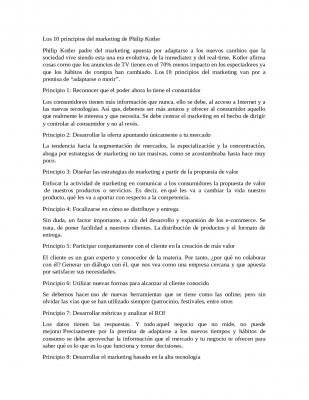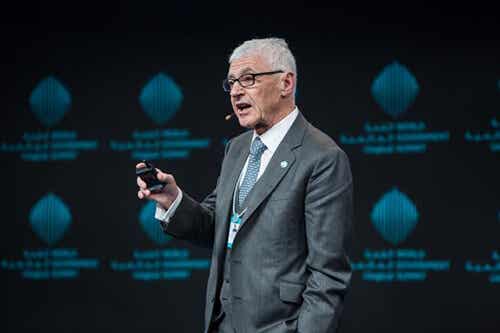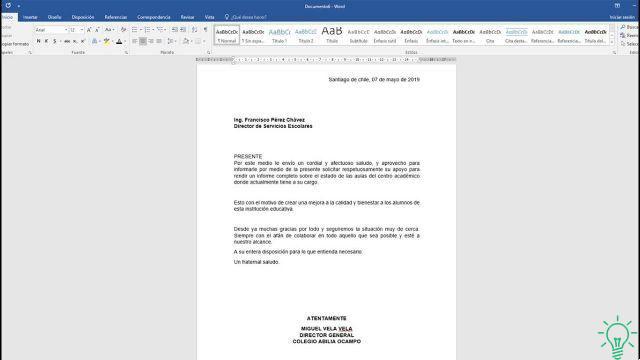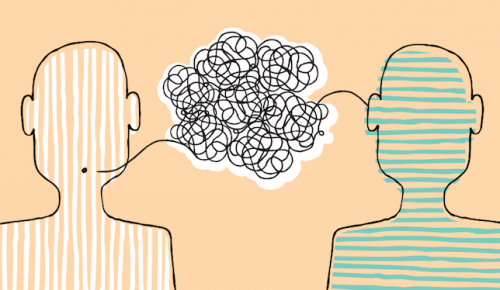Non-cognitive skills will be fundamental for the future. Creativity, emotional intelligence, self-awareness or communication skills will be essential.

Last update: June 22, 2022
Non-cognitive skills define a wide range of competences such as problem solving, awareness, motivation, perseverance, teamwork, etc.
According to experts in organizational psychology, these are skills that will be crucial in the labor market and in the social transformations that will soon take place.
The so-called "fourth industrial revolution", an era that has already begun and that focuses on technological innovation. In a few years we will need highly skilled workers. And we're not just referring to people with bachelor's and master's degrees. The future will belong to those who master a good number of psycho-emotional, ethical and behavioral strategies.
Therefore, and although many see a somewhat blurred line between cognitive and non-cognitive abilities, the truth is that the differences are obvious. Knowing the non-cognitive skills and introducing them into the curricula will allow to train generations prepared for future challenges.
Education should focus more on the early development of non-cognitive skills.
What are non-cognitive skills?
For a long time, training has been synonymous with the consolidation of hard skills (basic theoretical and procedural knowledge for carrying out a series of specific areas).
In recent years, however, this approach is changing as we begin to need another profile. In an increasingly robotic, mechanized and digitized society, having good cognitive skills will not be enough to carry out a certain job.
Instead, more transversal resources will be indispensable in accordance with the next industrial revolution. Non-cognitive skills represent the future and consist of patterns of thoughts, feelings and behaviors not related only to the working context. They are tools of life (Borghans et al. 2008).
In summary, we refer to socio-emotional or behavioral skills that are not fixed personality traits, but that we can learn and develop over time.
The research work conducted at the University of Padua highlights that non-cognitive skills have significant effects on both academic performance and the labor market. It is crucial to promote them because they allow you to achieve healthy cognitive, emotional and social development.
Self control
Self-control is the ability to control oneself, to manage thoughts, emotions and behaviors in general. This is possible by adopting a global perspective and not just taking into account the present moment.
Non-cognitive skills: critical thinking
In a world full of fake news and half-truths, critical thinking serves as a lifeline in an increasingly complex society. This approach consists, as the philosopher Francis Bacon pointed out, in the desire to seek, in the patience to doubt and in the willingness to meditate.
Critical thinking is one of the best non-cognitive skills. It defines the disposition to discern between coarse and brilliant arguments, between data that have value and those that do not contribute anything. In doing so, we abandon prejudices and stereotypes, as well as falsehoods.
Problem solving skills
Better problem solving strategies translate into mental health and human potential. Acting proactively, being creative in finding solutions, keeping an open mind and managing stress means having a great life tool at your fingertips.
Perseverance
Perseverance is the ability to remain steadfast in achieving goals. This ability, together with the previous one, generates good results in the pursuit of objectives.
It is directly related to self-efficacy: the belief that a task can be done successfully.
Non-cognitive skills: empathy
Empathy is the ability to put yourself in others' shoes, recognize and feel your own emotions. It is perhaps the most elementary non-cognitive ability to develop a healthy sociability oriented towards the common good.
However, it requires commitment to develop. People who don't manage their empathy well end up suffering from fatigue as a result of excessive compassion or making selfish decisions to avoid pain.
Emotional health and emotional intelligence
Within non-cognitive abilities, health and emotional intelligence are decisive. They imply, neither more nor less, than knowing how to understand our emotions and those of others in order to act accordingly.
Knowing how to regulate what we feel at all times and placing these psychophysical states in our favor mediates our success and well-being.
Social skills
What is the point of having 5 PhDs and a brilliant CV if we don't know, for example, how to communicate with others? Social skills allow us to integrate, achieve goals, defend our rights, etc. Among the most important we find:
- Assertiveness.
- Communication skills
- Active listening.
- Coping with hostility.
- Self-affirmation, defense of one's rights.
- Expressing and receiving criticism in a healthy way.
- Learn to apologize.
- Express positive and negative emotions.
Motivation for learning and discovery
Non-cognitive skills would be meaningless without motivation. This psychological dimension guides the human being and includes areas such as curiosity, passion, the establishment of habits, the desire to learn and discover, the ability to improve oneself and a long time etc.
Non-cognitive skills: resilience
The future holds great challenges that could cause failure, frustration and disappointment. Within this complexity, nothing will be as decisive as being resilient and getting up by learning from mistakes and from adverse experiences.
Resilience is about seeing opportunity in the midst of difficulties, a non-cognitive skill that we all need to develop.
Self-esteem
Self-esteem refers to subjective evaluation of the self-image. This varies throughout life and both external factors (success or failure) and internal factors (self-perception, for example) interact to modulate levels of self-esteem.
Work ethic and community responsibility
We understand the work ethic as an essential value that improves coexistence in the workplace. It means learning to respect colleagues, being responsible, committed and honest.
Likewise, these non-cognitive skills can increase if a commitment to society is acquired.
This commitment implies a genuine desire to improve it, to contribute to its advancement, to seek harmony in the community or justice.
How to develop non-cognitive skills?
Non-cognitive skills can also be developed over the course of life: it is a long-distance race to be faced consciously. Some useful strategies in this regard are:
- In the educational field, establish assemblies where students can express their opinion and propose improvements in their classes.
- Role play: playing a role in an imaginary situation. In this way, the most appropriate behaviors are adopted in each scenario.
- Relaxation techniques for emotional management and focus.
Conclusions
Among the work and life skills that we should promote in the new generations there are also these skills which are so necessary and fulfilling.
Many will be able to develop and refine them over time, but the sooner we plant these seeds in children's minds, the sooner we will shape a more capable society, committed and brilliant.

























